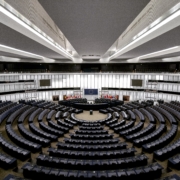Lionel Pavey about the German Bund Yield. Is there a solution?
| 17-06-2016 | Lionel Pavey |
This week’s headlines were all about the German Bund Yield hitting a historic low. On Wednesday we also published an article about this subject and asked our experts to respond. Expert Lionel Pavey reacts with a full article on the German Bund Yield and asks himself; is there a solution?
Possible reasons:
- Flight to quality – investors looking to place their money in a safe place
- Brexit referendum – polls suggest chance of exit greater than ever leading to uncertainty
- Quantitative easing – ECB policy of buying government bonds pushes bond prices up and decreases the yield
Since 2008 governments have attempted to kickstart their economies using monetary policy – lower rates and quantitative easing. The sellers of government bonds who receive cash do not appear to be either spending it or investing it – a report from Merrill Lynch states that fund managers are sitting on more cash than at any times since 2001 and have reduced their shareholdings to their lowest level in 4 years.
It would appear that all efforts by central banks via monetary policy have not succeeded. If government yield are persistently negative there is a possibility of stagflation and important investment decisions being deferred to a future date, leading to falling prices and a vicious downward spiral.
Is there a solution?
When I studied economics there were 2 schools of thought at the time – Milton Friedman and John Maynard Keynes. I have always felt that Keynes was discarded rather harshly by the monetarists.
Keynes stated that in recessions the aggregate demand of economies falls. In other words, businesses and people tighten their belts and spend less money. Lower spending results in demand falling further and a vicious circle ensues of job losses and further falls in spending. Keynes’s solution to the problem was that governments should borrow money and boost demand by pushing the money into the economy. Once the economy recovered, and was expanding again, governments should pay back the loans.
It is that last sentence that is pertinent. Keynes’ remedy runs countercyclical to the business cycle –instead of using all the money to buy up Government Debt, Government should borrow the money directly and embark on large projects to improve the infrastructure within a country. When the economy was revived Government should then repay the money borrowed and run a budget surplus.

Cash Management and Treasury Specialist – Flex Treasurer









